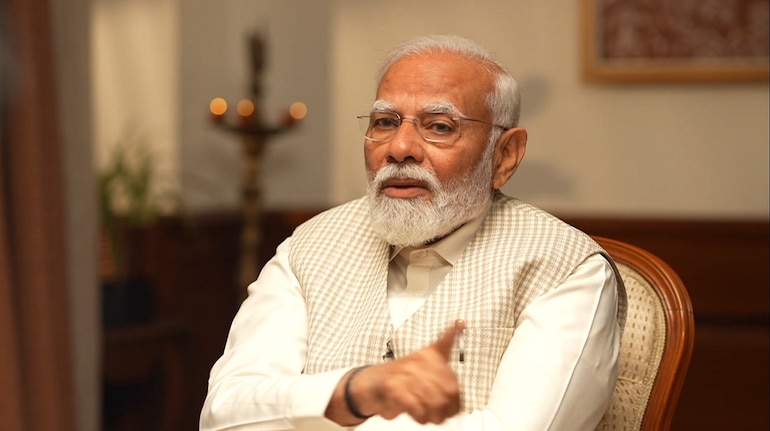



CAs will be heartbroken. In June and July this year, when the finance minister of the new government—most likely the third Modi administration—prepares the budget, wealthy clients won’t be queuing up seeking complex structures to avoid inheritance tax.
Each year, with unfailing inaccuracy, there are rumours before the budget that an inheritance tax—which everybody now knows was abolished in 1985—is in the works. It’s not happened, and now will likely never will.
In an interview with Network18, PM Modi has laid the idea to rest. “What the Bharatiya Janata Party (BJP) plans to do is written in our manifesto. How does the thought that we will carry forward their plan even come to your mind? The ideology of BJP is clear...Please don’t impose their great thoughts on us,” said the Prime Minister, responding to a question on Sam Pitroda’s comments, which seemed to suggest that India should emulate the US in imposing an inheritance tax.
Remarkably, this election has turned, at least partly, into a battle over economic ideology in a manner not seen in recent polls. This follows speeches by Congress leader Rahul Gandhi in which he promised to ‘survey’ the wealth of the country and adopt ‘krantikari’ steps to redistribute it, according to a recent speech.
For good measure, Pitroda, a long-time associate of the Gandhi family, also suggested a rather onerous tax rate of 55%, piling on the misery for the beleaguered opposition party, which, for the record, has denied harbouring such ideas. Estate duty, also referred to as inheritance tax (the two concepts are similar but not identical), was in force in India between 1953 and 1985, with a tax rate as high as 85% for estates valued above Rs 20 lakh.
Estate duties are indeed fairly common in wealthy countries though they kick in only at fairly high levels of the value of assets, around $1 million in the case of several US states. Rates can be well in excess of 50% in other countries, though in the US, where Pitroda lives, tax rates are typically lower.
The main problem with inheritance taxes, particularly at high rates, is that it often creates a substantial liquidity problem for inheritors who must pay. They may well have to sell assets, including possibly the ones they are inheriting, to pay taxes. It’s a huge psychological hindrance to capital accumulation by entrepreneurs and wealth creators, something that India can ill-afford at this stage of its economic development.
Notably China, nominally a communist country, has no inheritance or gift tax (though it does have a transfer fee). Vietnam has a 10% tax but at a high threshold. While India is all set to become the world’s third-largest economy, its ranking in terms of per capita is still a lowly 131st.
The wealth tax, which has similar adverse effects on capital formation, was scrapped as recently as 2015. India should eschew these taxes for the foreseeable future. Again, China, which India is trying to supplant as the world’s manufacturing superpower, has no wealth tax.
Energy Transition
In the interview, Modi outlined an aspirational economic vision for India, drawing a sharp contrast with the redistributionist vision articulated in the Congress manifesto and in the speeches of Congress leader Rahul Gandhi.
For instance he spoke of making electricity bills zero for households, not by offering subsidies as Karnataka and Punjab has done, but by installing rooftop solar panels at scale across tens of million of households. Instead of paying electricity bills, households could sell surplus electricity to the grid thereby earning income.
In doing this, Modi smartly linked energy transition to local-level entrepreneurship and income generation opportunities. If implemented at scale, it could alleviate the perennial financial distress—arising from the need to subsidise electricity for the poorer sections of the population—which has plagued state electricity boards for years.
Modi also spoke of dramatically reducing household fuel bills not by means of subsidies but by accelerating the transition to EVs—both two- and four-wheelers—by using solar power to charge these vehicles. This would also drastically cut India’s import bills by reducing demand for fossil fuels.
In his first two terms, Modi implemented programmes at scale, notably in the area of public digital infrastructure and direct transfer to beneficiaries.
If the widespread adoption of solar power becomes a reality, it could be a flagship programme of a third Modi term and make India a leader in energy transition. India could become a frontrunner in solving problems associated with renewable energy, such as storage and speed of charging. The latter is the cause of range anxiety, one of the main barriers to adopting EVs.
Other taxes
Though not discussed in the interview, the government also ought to refrain from ideas such as raising short-term and long-term capital gains tax, currently at 15 and 10%, to the income tax relevant for the taxpayer. This would come to 30% at the highest level of close to 40% for rates above Rs 5 crore. The rise in market capitalisation and the consequent spread of positivity and optimism have helped boost the economy. Also, comparable economies have lower or even zero capital gains tax. While the adverse impact of higher capital gains tax is not comparable to estate duty, it will deter retail investors, at least to some extent, from buying shares and mutual funds in the quantities that they have recently. It’s a step best avoided.
Discover the latest Business News, Sensex, and Nifty updates. Obtain Personal Finance insights, tax queries, and expert opinions on Moneycontrol or download the Moneycontrol App to stay updated!
Find the best of Al News in one place, specially curated for you every weekend.
Stay on top of the latest tech trends and biggest startup news.